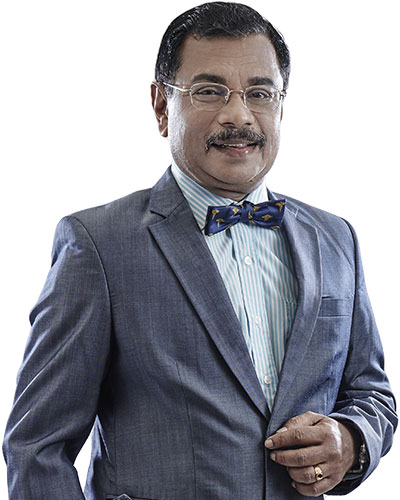
external factors may contribute to an increased risk of breast cancer.
BREAST cancer remains the most common cancer affecting women worldwide. Early detection offers the best chance of long term survival and more treatment options. However, this is only possible if women take a proactive approach and get screened for the disease.
But a rising misconception among women today is that one is safe from the disease if there's no history of breast cancer in the family. As a result, some women may take a more casual attitude towards the disease and assume they don't need to be screened.
Subang Jaya Medical Centre (SJMC) clinical oncologist Dr Winnie Ng says even if one has no known family history of cancer, external factors such as environmental exposures, prolonged exposure to female hormones and lifestyle factors may contribute to an increased risk of breast cancer.
Several risk factors may increase the chances of getting breast cancer
Risk factors can be categorised as modifiable and non-modifiable. "There are numerous underlying causes of cancer. One cannot assume that only genetics play a part. Alcohol intake and smoking are also lifestyle factors that increase risk of breast cancer development," says Dr Ng.
Prolonged exposure to female reproductive hormones is also a known risk factor, such as women who have their first menstruation at an early age, have never been pregnant, or are at a late age during their first full-term pregnancy, or on oral contraceptive pills.
Late menopause also increases the risk of developing breast cancer. Postmenopausal women who are on hormone replacement therapy or are obese also have an increased risk.
"Therefore, women with no family history of breast cancer should not take screening lightly as it is essential for early detection and recommended for women across all age groups, and those exposed to higher-risk factors. The easiest method of screening is by self- examination of the breast."

All women, not just those at risk should be screened for breast cancer. Picture: Gpointstudio - Freepik.com
Dr Ng adds that a positive family history of breast cancer or inherited genetic mutations would fall within the second category of non-modifiable risk factors. In this instance, the risk of developing breast cancer increases by one and a half times to three-fold if a woman has a mother or sister with the disease. Mutations in breast cancer-susceptible genes such as BRCA1 and BRCA2 are also associated with a significant increase of breast cancer.
Dr Ng explains that early signs of breast cancer to watch out for are swelling in parts of the breast or swollen lymph nodes under the arm, an itchy or irritated breast, changes in breast colour, or an increase in breast size or shape. Through self-examination, one may notice that breast skin feels hard, tender, or warm, and there is redness, peeling or flaking of the nipple skin.
Some may also notice skin dimpling or their nipple turning inward, also known as "nipple retraction". Some women may experience nipple discharge too. These symptoms may or may not come with breast pain.

Dr Pathmanathan Rajadurai, SJMC Consultant Pathologist and Laboratory Director
SJMC consultant pathologist and laboratory director, Professor Dr Pathmanathan Rajadurai says there are two types of genetic testing for breast cancer and it is recommended that a patient have genetic counselling before and after testing for hereditary mutations so that she can make informed decisions.
Recent breast cancer genomic research is also ensuring that we can scale new heights in managing the disease in Malaysia and Asia. While genomic research data in the past was predominantly focused on Caucasians, the largest genetic and genomic database of Asian breast cancer has now been created.
"It is important to build a database which is representative of different ethnic groups because breast cancer susceptibility mutations can vary depending on geographical origins and ethnic groups," says Dr Pathmanathan.
Some of these mutations he explains are only found in the Asian population and the identification of these susceptibilities are a key step to better understanding how they can impact the risk of developing breast or ovarian cancer.
With the race to find a cure still in progress, early detection and screening remain the most practical solutions to discover the disease early. While breast cancer is more prevalent among older women, younger women are also at risk.
Dr Ng notes that women below 40 are recommended to undergo a breast ultrasound as the appropriate screening method as their breasts are denser, while women above 40 are advised to go for a mammogram.
